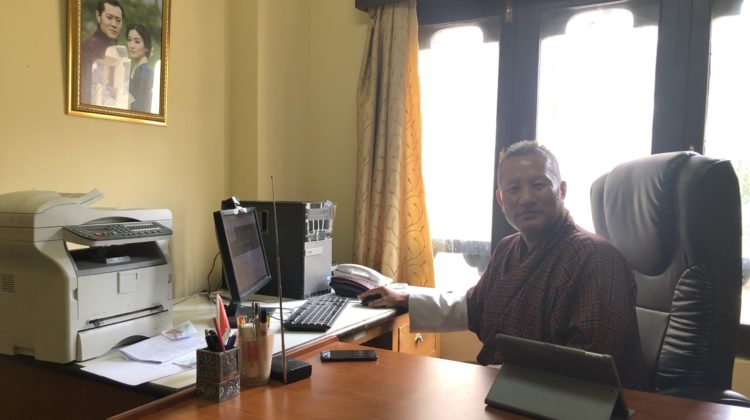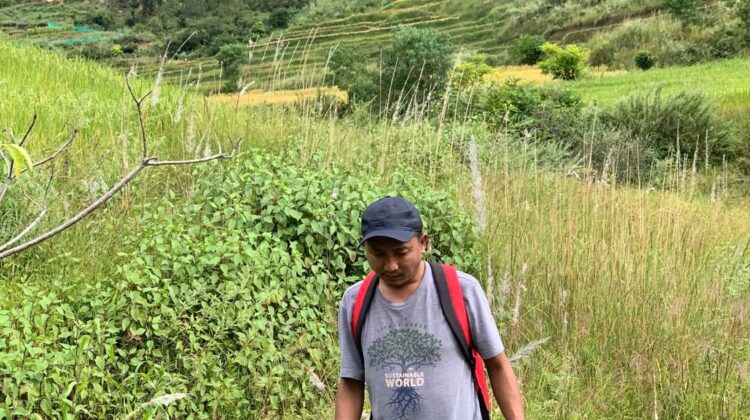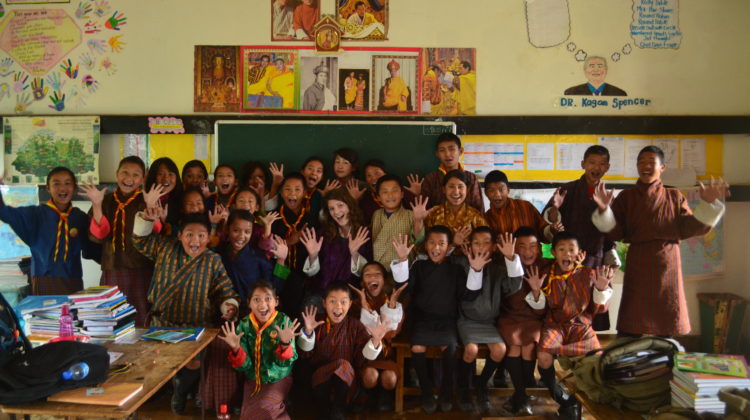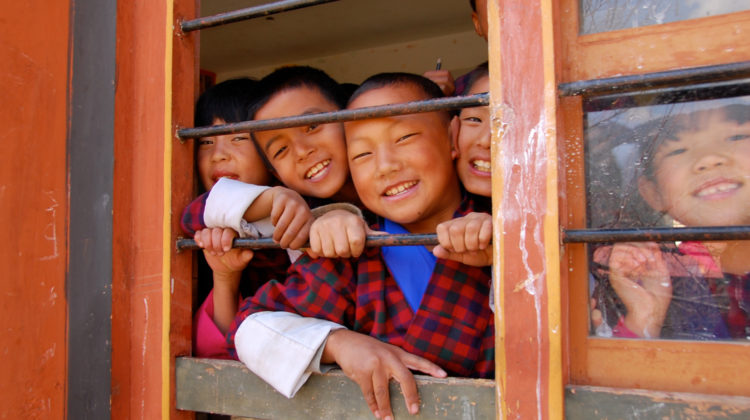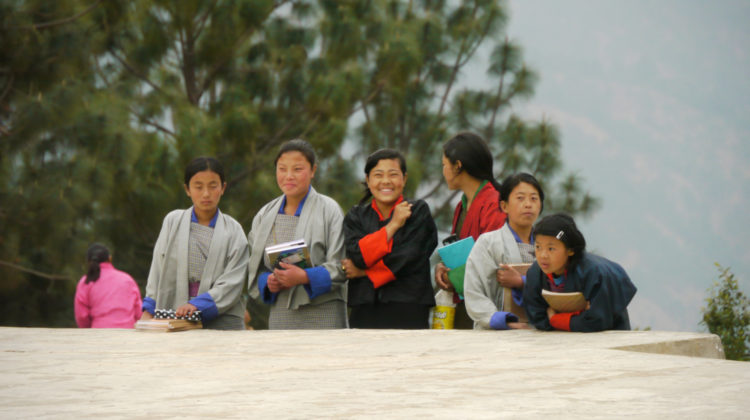Karma Tshering joined Bhutan Canada Foundation when it first open its doors in 2009. He has an extensive career working in development in Bhutan, which to date spans over 30 years. Keep reading this staff spotlight to learn more about Karma!
Can you describe what you do at BCF?
I work on everything! For programs this includes all of the logistics for placements, orientation, interactions with all stakeholders, and field visits. I facilitate meetings with our partner the Ministry of Education, as well as the Ministry of Foreign Affairs and other government officials. I also represent Canada and the Bhutan Canada Foundation in meetings or events with foreign officials, UN agencies and donor meetings. Now I have Kezang, our Program Manager, and she helps me to do everything we need to do.

What do you like best about your role?
I love interacting and talking with new teachers or other experts, whether they are here short term or long term. It is very fun and educational for me as well. Working in the last 30+ years with Canadian and other nationalities (10 years at BCF, over 20 years in other development organizations), I love meeting people with different backgrounds and points of view.

Can you talk about one of your favourite work moments?
One of my favourite work moments is organizing orientation for long term teachers and accompanying them to the field. They arrive excited for a different experience. I enjoy welcoming them, introducing them to Bhutan, accompanying them to the field and knowing them better. In the end they are different and learn a lot from their experience. It is a privilege for me to welcome and work with these experts. I get to see the benefits for both parties.

What is one of the biggest challenges at BCF?
As a small CSO, we have financial constraints. I would like to do other things with the MoE but sometimes we are limited and unable to do everything. Another thing is getting calls at odd hours, especially from teachers in the field. I always assume it is an emergency. Luckily, so far it has been no issue.
What is the most important skill that you have?
My most important skills are communication and dedication to work. I work with so many types of people and this helps me in all functions. I use diplomacy and that helps me keep good relationships with others.

What do you like to do when you are not working?
Archery! It’s the national sport of Bhutan and it is also a social gathering. I play with government officials, secretaries, directors, doctors and lawyers. This helps me a lot in my work. Archery is like the Bhutanese equivalent to playing golf. It is a chance for everyone to get together and talk.

Can you talk about how education has changed since you were a student?
A lot has changed in the education system since I was a student. There were not many Bhutanese teachers. Most were Indian teachers and only a few Bhutanese teachers who would teach Dzongkha. We had Indian curriculum and there was a lot of memorization. Now youth are taught by Bhutanese teachers. We have Bhutanese curriculum and our own board. We see 21st century pedagogies, new systems, and professional development programs. In just one generation it has changed a lot. The youth of this generation are lucky to have all the tools they have to support their education like iPads and mobile phones.

In your opinion, what is something that has transformed education in Bhutan?
We have a new system, new strategies, and new approaches that together have all changed education in Bhutan. The 12th Five Year Plan, Education Blueprint, and iSherig have all shaped this change. Today we’re seeing a large focus on the ICTization (Information, Communication, and Technology) of education and TVET (Technical and Vocational Education and Training) which will help shape the future options for youth.
What development related initiative are you looking most forward to in Bhutan?
Online learning and the digitization of the education system. First the MoE is building the infrastructure for this like wifi and fibre cables. This is all very exciting. With COVID-19, we’re already seeing teachers naturally adapting to online systems to keep students engaged (where possible). Once the online learning system is ready, we will be able to have more online education.

Is there any advice you would give to international teachers or other experts who are volunteering in Bhutan?
First off, learn about Bhutan. They should learn the local context, the culture, the traditions so when they do arrive they will not get lost and can appreciate their time in Bhutan. Secondly, I would recommend they ‘go with the flow’. Things in Bhutan can seem to be at a slower pace or it may feel like plans keep changing. Just remember everything is tentative and they will do well here.





